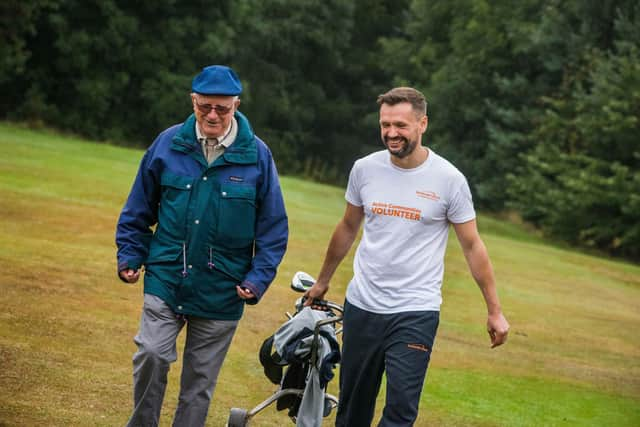Movement for Memories project is a magic pill for the mood - Sam Scott
Being active is one of the best things people with dementia can do for their health and wellbeing. It can help to boost their confidence and self-esteem, support them to stay connected to their communities and enable them to maintain independence for longer. A carer of someone with dementia recently told me that being active is like ‘a magic pill for their mood’ and I couldn’t think of a better way to describe it.
As a charity, Edinburgh Leisure is committed to creating opportunities for everyone in Edinburgh to keep active and well. We are passionate about the impact of physical activity and are proud to support over 10,000 people affected by health conditions, disabilities, inequalities and poverty to improve their health, wellbeing and quality of life each year.
Advertisement
Hide AdAdvertisement
Hide AdOur Movement for Memories project supports people living with dementia to be active. We appreciate how difficult it can be to get a dementia diagnosis, so we also support people who are not formally diagnosed but are showing signs or symptoms of early-stage memory loss.


The project offers a range of options for people at all stages of dementia to reap the benefits of a more active lifestyle. Its buddy service involves participants being paired up with a volunteer to take part in activities of their choice. Often these are activities they used to enjoy, such as playing golf, swimming, going to the gym, but need an extra helping hand with now.
Someone who has benefitted from the buddy service is 79-year-old David, who plays badminton at Craiglockhart Leisure and Tennis Centre with his buddy Dmitri. His sister Julie, who is one of his carers, tells us that getting active again has made a tremendous difference to his quality of life.
“David used to play football professionally, so sport and physical activity have always been an important part of his life. Even as he got older, he still walked his dog every day and did DIY for his daughters. He’s fit and strong for his age and wanted to keep being active but the symptoms of his dementia meant that he could no longer do it without extra support.
“The change in David has been enormous since he started playing badminton with Dmitri. He comes out of the session like a new man – his spirits are lifted, he’s chattier than before and often his memory seems to improve for a short while.
“Day to day he spends lots of time with me and his daughter Anne so it’s brilliant for him to get out and spent time with other men. The camaraderie he has with Dmitri is special. The banter they have, often about football, is wonderful to witness.”
Being part of Movement for Memories doesn’t just benefit the participant, according to buddy volunteer Dmitri: “Volunteering with Movement for Memories has been so rewarding. It’s been great to hear that the buddy service has brought fresh enjoyment and energy back into David’s life. While he struggles with his short-term memory, he certainly hasn’t forgotten how to play badminton or lost his competitive spirit!”
David story is just the tip of the iceberg. For every pair working out in the gym, swimming lengths in the pool or playing a round of golf, there are hundreds of others across the city who could benefit from being active. If you would like more information on becoming a Movement for Memories participant or volunteer, please email [email protected] or visit www.edinburghleisure.co.uk/be-active/movement-for-memories
Sam Scott is a Health Development Officer at Edinburgh Leisure
Comments
Want to join the conversation? Please or to comment on this article.